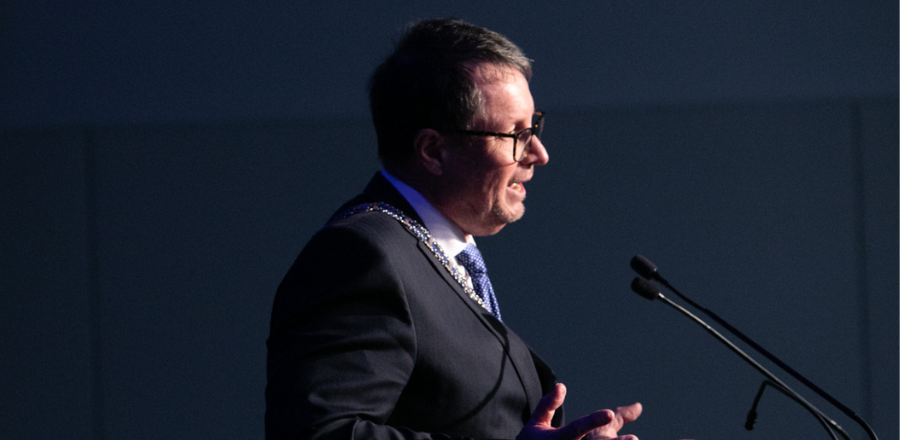Election of new leaders tops off AMA National Conference
A successful three-day national conference culminated in the election of Professor Steve Robson as AMA President and Dr Danielle McMullen as Vice President.

A successful three-day national conference culminated in the election of Professor Steve Robson as AMA President and Dr Danielle McMullen as Vice President.
Along with a newly-elected Federal Council starting its work this week, the AMA enters a new phase following the election of the new President and Vice President on Sunday at the AMA National Conference in Sydney.
A senior specialist in Obstetrics and Gynaecology, Professor Robson served as AMA ACT President, on the AMA ACT Board for five years and is a Federal Councillor. He has also been President of the Royal Australian and New Zealand College of Obstetricians and Gynaecologists.
Among priorities for his presidency, Professor Robson underlined saving general practice — which is seeing an exodus of doctors from the specialty and reduced numbers of trainee doctors choosing the specialty; restoring sustainability to public hospitals and private health and attending to the mental health of doctors and the medical profession which has suffered throughout the pandemic.
Dr McMullen is a Sydney GP and immediate past president of AMA NSW. She led the handling the state’s response to COVID and effectively engaged decision makers to further the AMA’s strategic policy and public health aims. Dr McMullen said as Vice President she was looking forward to working with members, non-members and especially government to see the $1 billion in funding earmarked for general practice spent in a targeted and effective way as outlined in the 10 Year Primary Health Care Plan.
Before the election, immediate past president Dr Omar Khorshid gave his valedictory speech, outlining the achievements of his two-year term, which was heavily characterised by the pandemic. The AMA’s advocacy went well beyond COVID-19, encompassing reform for the private health sector, including protheses and private health insurance; public health; public hospitals; and general practice through targeted campaigns.
The National Conference provided a valuable forum for doctors across Australia to contribute to tackling the important issues facing all sectors of the profession, including managed care, the MBS, climate change and health, issues in the bush for rural doctors, and how the medical colleges, Australian Medical Council and Medical Bord of Australia (MBA) responded during the pandemic. During the conference MBA CEO, Dr Anne Tonkin announced a new triage approach to dealing with notifications to process them more quickly and efficiently.
Minister for Health and Aged Care the Hon Mark Butler and his shadow counterpart Senator Anne Ruston took questions from doctors at the conference. Concerns about the Queensland UTI prescribing trial and the North Queensland prescribing pilot were put by Dr Nicole Higgins, a GP from North Queensland. Minister Butler was asked if his support for maximum scope of practice covered the north Queensland pharmacy trial. He responded by saying at a time of skyrocketing demand for healthcare and constrained supply, it didn’t make sense to him in principle not to have all health care professionals working as close to the top of their scope of practice as possible.
“I’ve made it clear this is largely a clinical decision. It’s a discussion that needs to be stepped through very carefully to achieve consensus — decisions about where scope limits sit aren’t made by politicians. I’m shaped by attempts in the past to try to do some work in this area — but they’ve come to nothing …. because they’ve enlivened turf wars and haven’t been carefully managed with a mature and constructive approach by all parties,” Minister Butler said.
On public health, Senator Ruston was asked why there had been no political support from either party for a sugar tax on sweetened beverages, which had been shown to work to reduce obesity and diabetes and generate government revenue without harming the sugar industry. She answered that as a liberal, it was in her DNA not to like narrow-based taxes.
“I do agree we need to embark on a campaign of some sort to deal with this issue, maybe you should call it something other than a tax. I understand what’s trying to be achieved here and I’m more than happy to engage with the AMA and other groups on this. It does seem like a very weird situation where we’re not making sure that Australians understand the damage they are doing to themselves when the consume products in such large quantities, and it’s not just sugary drinks,” Ms Ruston said.